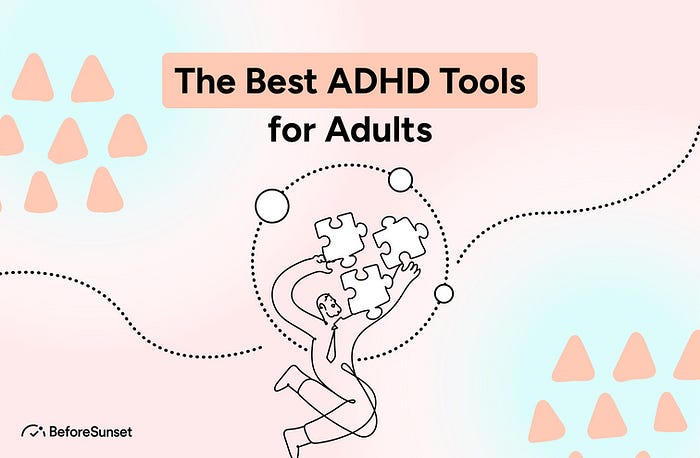How to Pick the Best Adult ADHD Tool

ADHD can severely impact your life. It is primarily characterized by inattention, hyperactivity, and impulsivity. Thus, we recommend utilizing these tactics to regulate your reactions as symptoms appear to prevent them from taking over your day and life. The best ADHD tools for adults are these.
To read the full blog, visit our website!
ADHD — What is it?
ADHD is Attention-Deficit/Hyperactivity Disorder. This neurodevelopmental disorder usually starts in childhood and lasts into adulthood. ADHD is characterized by persistent impulsivity, hyperactivity, and inattention that hinders growth.
ADHDers struggle with focus, organization, and task completion. They may be preoccupied, forgetful, and make mistakes. Fidgeting, agitation, and difficulty sitting still are signs of hyperactivity.
Impulsivity includes acting rashly, meddling, and not waiting their turn. The DSM-5, a popular mental illness classification system, has ADHD diagnosis criteria. Remember that ADHD severity varies by person.
ADHD is thought to be caused by genetic, environmental, and neurological causes. Executive function and attention management may suffer. Behavior modification, psychoeducation, and medication are prominent ADHD treatments.
Structured routines, organization, and positive reward are behavioral tactics. Focus and hyperactivity-reducing stimulants and non-stimulants can assist manage symptoms. ADHD patients must collaborate with doctors to create a customized treatment strategy.
Exactly What is the ADHD Coping Mechanism?

ADHD sufferers utilize coping mechanisms to manage their ailment. These coping strategies lower impulsivity, hyperactivity, and inattention to improve life skills.
Structured routines and schedules, visual aids and reminders, organizational systems, goal-setting and task prioritization, mindfulness and relaxation, consulting therapists or support groups, and distraction-controlling and focus-boosting techniques are common coping mechanisms. These coping methods vary by person, ability, and ADHD symptoms. They can improve ADHDers’ productivity, self-regulation, and well-being.
Which Adult ADHD Treatment Works Best?
A combination of approaches targeted to ADHD adults often works best. Effective interventions include:
Psychoeducation & Education
Understanding ADHD and its effects may help. Psychoeducation explains ADHD biology, how it affects daily living, and successful symptom management.
Medication
A doctor or psychiatrist can advise about ADHD medication. Consider non-stimulants like atomoxetine or bupropion. Methylphenidate and amphetamines are common stimulants. Medication boosts concentration and impulse control. Consulting a medical specialist before using medicine is recommended.
CBT — Cognitive-Behavioral Therapy
The CBT aims to transform negative ideas and actions. It helps ADHDers create time management, organizing, and problem-solving plans. Self-esteem and emotional control can be improved with CBT.
Education & Training
ADHD symptoms can be managed using cognitive, social, and executive functioning programs. These programs help with planning, attention, and judgment.
Setting Up a Routine
ADHDers can manage time, stay organized, and reduce distractions with a regulated environment and routines. Setting reminders, employing visual aids, and breaking things down may help.
Medical Treatments
Counseling or therapy can help ADHD sufferers cope emotionally. Depression and anxiety, which are often related with ADHD, can be treated by therapists.
Healthy Habits
Lifestyle changes can reduce ADHD symptoms. Regular exercise, a healthy diet, enough sleep, and stress management skills like mindfulness and relaxation can increase well-being.
Before you leave, don’t forget to sign up to BeforeSunset AI to streamline your workday!
